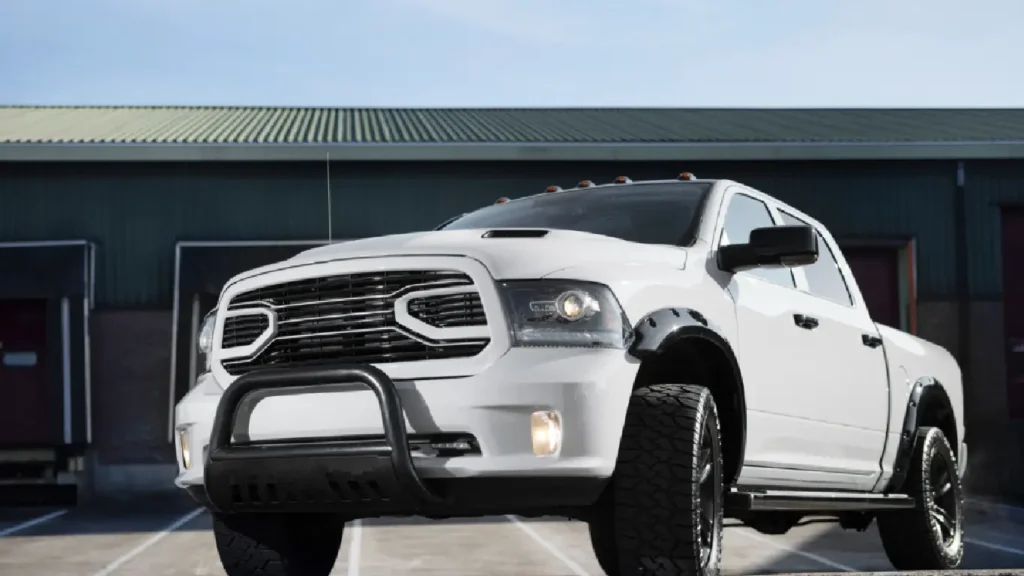9 Tips on the Psychology of Car Buying Consumer Choices in 2024

The automotive industry is a complex interplay of technology, design, and human behavior. The heart of it is the consumer’s psychology of buying a car.
This comprehensive explores the vital factors that shape car buying decisions, from brand loyalty and emotional connections to the impact of technology and social media.
1. Psychology of Buying Car Brand Loyalty
Strong brand loyalty has influenced buying a car. Consumers often exhibited allegiance to specific automotive brands due to habit, family tradition, or personal affinity. Automakers have capitalized on this loyalty, considering it a cornerstone of their business.
However, the automotive industry is undergoing a significant transformation. Certain brands, such as Saab, Infiniti, and Mitsubishi, have challenged the notion of unwavering brand loyalty. As a result, consumers are increasingly open to exploring alternative options when buying a car.
Moreover, the new competitors, including Tesla, BYD, GWM Ora, Fisker, and NIO, are intensifying competition in the buying new car market. These companies are aggressively targeting consumers with innovative electric vehicle offerings. Simultaneously, established brands like MG are reinventing themselves, combining cutting-edge electric technology with nostalgic appeal to broaden their customer base.
2. Psychology of Buying a Car Insight of Electronic Vehicles (EV) Cars
The psychology of buying a car is at a crossroads. On one side, concerns about infrastructure, depreciation, range anxiety, and complex technology can be overwhelming. The other side is the constant barrage of news about climate change and environmental issues that can create a sense of moral obligation.
However, the latest generation of EVs is becoming increasingly appealing. Many people will transition to electric vehicles, whether by choice or necessity. Early adopters often cite environmental concerns as their primary motivation, while others may feel social pressure to avoid seeming outdated or indifferent to climate change.
As the automotive industry undergoes this rapid transformation, understanding the psychology of car sales and the factors influencing buying decisions will be crucial for consumers and manufacturers.
3. The Smartphone Generation Drives Car Buying Decisions
Car buying has transformed from a passion for performance to a quest for connectivity. Today’s consumers prioritize seamless smartphone integration, advanced driver assistance systems, and autonomous features over traditional driving thrills. Heated and massaging seats, once luxury extras, are now desired comforts.
Manufacturers are racing to meet these demands, embedding AI and voice assistants like ChatGPT into vehicles. The psychology of car sales has shifted dramatically, with technology at the heart of purchase decisions. Understanding these evolving consumer preferences is crucial for automotive success.
4. The Digital Revolution of Car Buying
The pandemic accelerated our digital-first lifestyles, making in-person shopping a relic of the past for many. This shift is dramatically changing the psychology of buying a car. Consumers now expect the same convenience when purchasing a vehicle the same as when ordering groceries online. The traditional car dealership experience, often involving high-pressure sales tactics, is increasingly seen as outdated.
Instead, online platforms should provide transparency and control in their platforms. Virtual tours, test drives, and detailed comparisons have empowered consumers to make informed decisions without setting foot in a showroom. The ability to order a car online and have it delivered to your doorstep is becoming the norm. This approach is poised to become the norm as tech giants like Amazon enter the automotive market.
5. Influencer Impact on Car Buying
Social media has revolutionized the psychology of car sales, eclipsing the traditional automotive market. TikTok, Instagram, and YouTube influencers wield immense power over consumer decisions. Their engaging content can transform the car-buying journey.
Automakers are keenly aware of this shift, investing heavily in social media marketing. Consumers must approach influencer-driven content with a critical eye. Many influencers offer genuine insights, but some are paid to endorse specific car models. Always look for the “paid partnership” disclosure to discern recommendations. So, understanding the psychology of buying a car requires media literacy and careful consideration of various information sources.
6. Emotion and Identity in Car Buying
While practicality is essential, emotions often drive car purchasing decisions. Automobiles are more than mere transportation; they reflect personal identity, lifestyle, and social status.
From the sleek sedan for urban professionals to the rugged SUV for adventurers, automakers masterfully tap into emotional needs. By evoking specific emotions, they create a deeper connection with potential customers and drive sales. Understanding these psychological factors is crucial for successful marketing strategies.
7. Psychological Triggers in the Psychology of Buying a Car
Customer psychology plays a pivotal role in car purchasing decisions. Fear of missing out (FOMO) and the desire for status often influence choices. Luxury brands capitalize on these motivations by offering high-end vehicles as status symbols.
However, practicality and affordability remain essential in challenging economic climates.
8. Emotion vs. Logic in Car Buying
Purchasing a car involves a complex interplay of emotion and reason. Customers often balance practical considerations like safety, fuel efficiency, and cost with desires influenced by brand image, design, and social status. Understanding this psychology is crucial for marketers. Automakers can foster stronger connections with customers and drive sales.
9. Rationality in the Psychology of Buying a Car
While emotions influence car purchasing decisions, rational factors also play a crucial role. Consumers consider cost, fuel efficiency, reliability, and safety. To make well-informed decisions, buyers depend on clear and readily available information. By offering transparent data on these factors, automotive companies can enhance consumer confidence and loyalty.
This rational approach complements the emotional aspects of car buying, creating a balanced decision-making process.
Bridging the Gap Between Technology and the Psychology of Buying a Car with CarRookie
Buying a new car is complicated because decisions by rational and emotional factors are so hard. Our expert team at CarRookie connects you with top-rated sales agents to guide you through the car-buying process, ensuring a seamless and enjoyable experience.
FAQ | Psychology of Buying a Car
What psychological factors drive consumers to purchase luxury cars?Luxury car purchases are often driven by psychological desires for status, exclusivity, and personal gratification rather than solely practical needs. Some also view them as long-term investments.
What role does social media play in car buying decisions? Lorem ipsum dolor sit amet, consectetur adipiscing elit. Ut elit tellus, luctus nec ullamcorper mattis, pulvinar dapibus leo. What common psychological factors contribute to buyer’s remorse after purchasing a car?Common triggers for buyer’s remorse in the psychology of car buying include overpaying, feature envy, unexpected costs, and lifestyle changes that render the car unsuitable.



